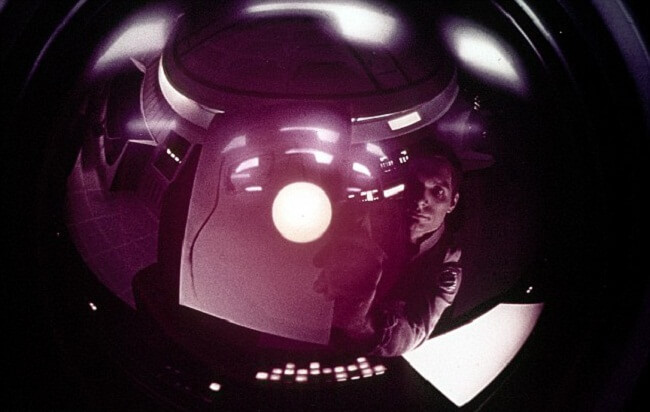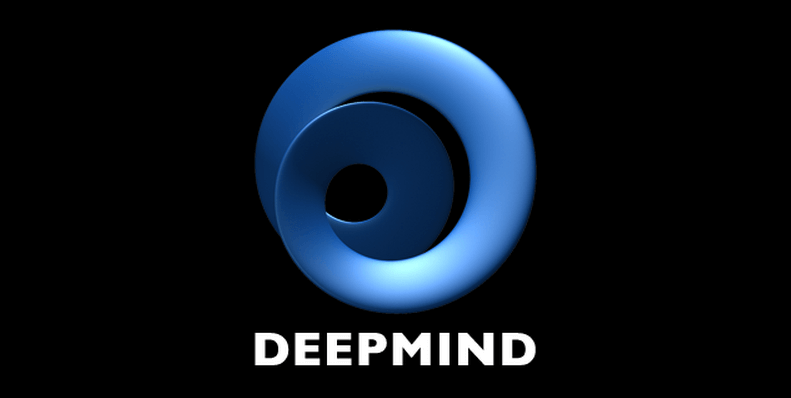- Get link
- X
- Other Apps
- Get link
- X
- Other Apps

Secret researchers of artificial intelligence in Google talked about a computer that they hope will one day be able to program themselves. The developers of the mysterious startup Deep Mind, which was bought by Google for $ 400 million earlier this year, are trying to imitate certain properties of short-term memory of the working human brain.
By combining the method of operation of conventional computers with the method of functioning of the human brain, the developers want to teach the machine self-programming. The machine is called a Neural Turing Machine (a neural Turing machine) and can learn to accumulate memory, later restoring it to perform logical tasks.
"We presented Neural Turing Machine, a neural network architecture inspired by both a model of biological working memory and the design of digital computers," the scientists wrote. "Our experiments show that it is able to learn simple algorithms using data examples and use these algorithms to work outside the training regime."
The new computer is an effective type of neural network, which is adapted to work with external memory. The result is a computer that remembers data, and then uses it to perform tasks that were not prepared in advance.
"We have expanded the capabilities of neural networks by connecting them to external memory resources, with which they can interact through the process of paying attention," the team writes.
"The combined system is similar to the Turing machine or von Neumann architecture, but differs in the final parameters, which allows it to effectively train with a gradient descent. Preliminary results show that Turing neural machines can perform simple algorithms such as copying, sorting and associative responses to examples of incoming and outgoing data. "
Google and its goal to create an artificial intelligence

The acquisition of DeepMind in January was not Google's first step in artificial intelligence and machine learning. A recent Hummingbird search update has made Google "more humane" - search queries account for the context, similar to the human brain.
Google Now uses "smart analysis" to predict what Android users will do next, offering the appropriate help and information at each step before the user asks.
Also, Google hired futurist Ray Kurzweil to the post of technical director in 2012. Kurzweil is famous for its loud statement that in 30 years people will have the opportunity to upload their consciousness to computers and gain digital immortality. Kurzweil also claims that we will be able to update the biological parts of our body, replacing them with mechanical ones, as early as 2100.
Last week, a Californian techno giant announced that he was teaming with two Oxford teams to develop artificial intelligence to improve people's understanding of computers, visual recognition systems and the development of in-depth training.
This announcement was followed by one more: Google is also developing ultra-fast "quantum" chips based on the human brain to make searching and software more intuitive.
"Today, the study of artificial intelligence is an exciting process, we are seeing progress on all fronts, including pattern recognition and understanding of the natural language," wrote Demis Hassabis, co-founder of DeepMind and vice president of engineering for Google in his blog. "We are pleased to announce a partnership with Oxford University, which will accelerate the development of Google in this area."
Professors Nando de Freitaz, Phil Blansom, Edward Grefenstett and Karl Moritz German at the beginning of this year have teamed up to create Dark Blue Labs, which will explore how to help machines better understand people, or rather, what users say to them.
Also to the team DeepMind joined Karen Simonyan, Max Yaderberg and Andrew Cisserman, experts in computer vision systems. Their goal is to improve the system of visual pattern recognition using deep training.
Simonyan and Cisserman developed one of the award-winning systems during the ImageNet 2014 competition. DeepMind hired all seven. The three professors will also spend part of their time working at Oxford University.
Elon Mask: artificial intelligence is "more dangerous than nuclear weapons"
Elon Mask is one of the driving forces on the field of super intelligent computers. The entrepreneur is very interested in this area, but devotes more time to the development of space vehicles and electric vehicles. In this case, the founder of Tesla argues that the technology of artificial intelligence can one day be more dangerous than nuclear weapons.
Last month, the billionaire published a tweet in which he warned people that "we must be very careful with AI. Potentially, it can be more dangerous than nuclear weapons. "
Mask referred to the book "Superhightlect: Paths, Dangers, Strategies" by Nick Bostrom's pen, which raised many questions about how humanity will cope with super-intelligent computers. Bostrom is also ardent supporter of the theory that our world is an illusion, and we live in computer simulation.
In parallel with collaboration with leading scientists in the field of artificial intelligence, the California team Google has teamed up with physicist John Martínis to build quantum processors. The new position became part of the "hardware initiative" to develop and create subatomic-level chips that should be much faster than the current processors.
Standard computers deal with binary data, expressed in zeros and ones. Quantum computers use the behavior of subatomic particles to encode data. Experts believe that a quantum bit, or qubit, which can be in two states simultaneously, will greatly speed up the speed and productivity of computers.
Professor Martinez currently works at the University of California at Santa Barbara and is one of the foremost scientists in the field of artificial intelligence.
With all this, Google is clearly aware of the danger associated with artificial intelligence and machine learning. It is so clear that an ethical council will be created in January to monitor work in this area. Ethical advice is needed so that no project gets out of hand. He will develop a number of rules and limitations on the use of technology.
The article is based on materials .
- Get link
- X
- Other Apps
Comments
Post a Comment